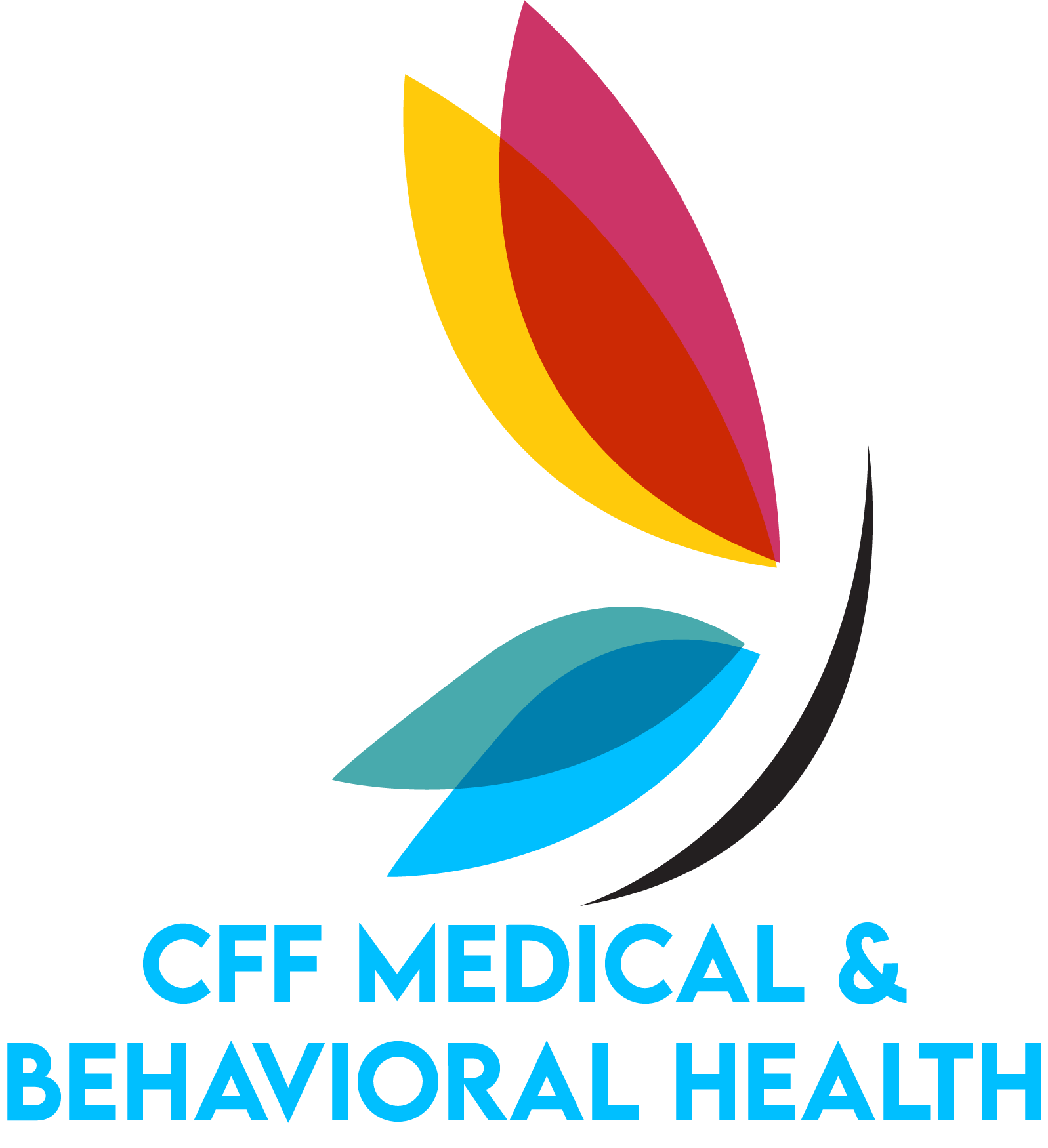Understanding Mental Health Treatment
Importance of Seeking Professional Help
Mental health is a critical aspect of overall well-being. Seeking professional help is essential for those experiencing mental health issues such as anxiety, depression, and PTSD. Professional therapists provide the expertise and support needed to navigate these challenges effectively. They offer a safe space to explore emotions, develop coping strategies, and work towards recovery.
Recognizing the signs that you may need professional mental health treatment is the first step towards healing. Symptoms such as persistent sadness, overwhelming anxiety, and traumatic flashbacks should not be ignored. Early intervention can prevent these conditions from worsening and improve the quality of life.
Overview of Therapy in Mental Health Treatment
Therapy plays a pivotal role in treating mental health conditions. It involves various techniques and approaches tailored to the individual’s needs. At CFF Medical & Behavioral Health, we offer comprehensive therapy services designed to address a wide range of mental health issues.
Therapy can be categorized into several types, each with its unique focus and methodology. For instance, Cognitive Behavioral Therapy (CBT) is widely used for anxiety and depression. It helps individuals identify and change negative thought patterns and behaviors. Learn more about how cognitive behavioral therapy (cbt) helps with anxiety & depression.
Another effective therapy is Eye Movement Desensitization and Reprocessing (EMDR), which is particularly beneficial for PTSD. EMDR helps individuals process and integrate traumatic memories, reducing their impact on daily life. For more information on PTSD treatment, visit ptsd vs. trauma: what’s the difference and how is each treated?.
Here is a table summarizing the common therapies for anxiety, depression, and PTSD:
| Condition | Therapy Type | Description |
|---|---|---|
| Anxiety | Cognitive Behavioral Therapy (CBT) | Identifies and changes negative thought patterns and behaviors |
| Depression | Interpersonal Therapy (IPT) | Focuses on improving interpersonal relationships and communication skills |
| PTSD | Eye Movement Desensitization and Reprocessing (EMDR) | Processes and integrates traumatic memories |
Therapy is not a one-size-fits-all solution. It requires a personalized approach to meet the unique needs of each individual. At CFF Medical & Behavioral Health, we develop customized treatment plans to ensure the best possible outcomes for our clients. For guidance on choosing the right mental health provider, visit how to choose the right mental health provider for your needs.
Understanding the role of therapy in treating anxiety, depression, and PTSD is crucial for anyone seeking mental health support. By working with professional therapists, individuals can build coping skills, receive emotional support, and embark on a path to recovery.
Therapy for Anxiety
Anxiety disorders are among the most common mental health conditions, and therapy plays a crucial role in managing and treating these disorders. At CFF Medical & Behavioral Health, we offer a range of therapeutic approaches tailored to meet the unique needs of each individual. Two of the most effective therapies for anxiety are Cognitive Behavioral Therapy (CBT) and Exposure Therapy.
Cognitive Behavioral Therapy (CBT)
Cognitive Behavioral Therapy (CBT) is a widely used and highly effective treatment for anxiety. CBT focuses on identifying and challenging negative thought patterns and behaviors that contribute to anxiety. By working with a therapist, individuals learn to reframe their thoughts and develop healthier coping mechanisms.
CBT involves several key components:
- Cognitive Restructuring: Identifying and challenging irrational or distorted thoughts.
- Behavioral Activation: Engaging in activities that reduce anxiety and improve mood.
- Exposure Exercises: Gradually facing feared situations to reduce avoidance behaviors.
Research has shown that CBT can significantly reduce symptoms of anxiety. For more information on how CBT helps with anxiety, visit our article on how cognitive behavioral therapy (cbt) helps with anxiety & depression.
Exposure Therapy
Exposure Therapy is another effective treatment for anxiety, particularly for phobias and panic disorders. This therapy involves gradually and systematically exposing individuals to the situations or objects they fear in a controlled and safe environment. The goal is to reduce the fear response over time through repeated exposure.
Key elements of Exposure Therapy include:
- Systematic Desensitization: Gradual exposure to the feared object or situation while practicing relaxation techniques.
- Flooding: Intense and prolonged exposure to the feared object or situation until the anxiety diminishes.
- Virtual Reality Exposure: Using virtual reality technology to simulate feared situations in a controlled setting.
Exposure Therapy helps individuals build confidence and reduce avoidance behaviors, leading to a decrease in anxiety symptoms. For more insights on the differences between PTSD and trauma and how each is treated, visit our article on ptsd vs. trauma: what’s the difference and how is each treated?.
At CFF Medical & Behavioral Health, we understand the importance of personalized treatment plans. Our team of experienced therapists is dedicated to providing comprehensive mental health services to help individuals manage and overcome anxiety. If you or someone you know is struggling with anxiety, we encourage you to seek professional help. For more information on recognizing the signs that you may need professional mental health treatment, visit our article on signs you may need professional mental health treatment.
Therapy for Depression
Depression is a common mental health condition that can significantly impact an individual’s daily life. At CFF Medical & Behavioral Health, we offer various therapeutic approaches to help individuals manage and overcome depression. Two effective therapies for depression are Interpersonal Therapy (IPT) and Behavioral Activation.
Interpersonal Therapy (IPT)
Interpersonal Therapy (IPT) is a structured, time-limited therapy that focuses on improving interpersonal relationships and social functioning to help reduce depressive symptoms. IPT is based on the idea that personal relationships play a significant role in mental health. By addressing issues in these relationships, individuals can experience relief from depression.
Key components of IPT include:
- Identifying and addressing interpersonal issues such as conflicts, role transitions, and grief.
- Improving communication skills to enhance relationships.
- Developing strategies to manage and resolve interpersonal problems.
IPT typically involves 12-16 weekly sessions, during which the therapist and the individual work collaboratively to identify and address interpersonal issues contributing to depression. For more information on the importance of seeking professional help, visit our article on signs you may need professional mental health treatment.
Behavioral Activation
Behavioral Activation is a therapeutic approach that focuses on helping individuals engage in activities that bring them pleasure and a sense of accomplishment. The goal is to break the cycle of depression by increasing positive interactions with the environment and reducing avoidance behaviors.
Key components of Behavioral Activation include:
- Identifying and scheduling enjoyable and meaningful activities.
- Setting achievable goals to increase activity levels gradually.
- Monitoring and evaluating the impact of these activities on mood and overall well-being.
Behavioral Activation is based on the principle that changing behavior can lead to changes in thoughts and feelings. By encouraging individuals to participate in activities that they find rewarding, this therapy helps to improve mood and reduce depressive symptoms. For more insights on how therapy can help with depression, visit our article on how cognitive behavioral therapy (cbt) helps with anxiety & depression.
| Therapy Type | Focus | Duration | Key Components |
|---|---|---|---|
| Interpersonal Therapy (IPT) | Improving interpersonal relationships | 12-16 weeks | Addressing conflicts, role transitions, grief |
| Behavioral Activation | Increasing engagement in positive activities | Varies | Scheduling enjoyable activities, setting goals |
At CFF Medical & Behavioral Health, we understand the vital role of therapy in treating anxiety, depression, and PTSD. Our team of experienced professionals is dedicated to providing personalized treatment plans to meet the unique needs of each individual. For more information on our comprehensive mental health services, visit our article on how to choose the right mental health provider for your needs.
Therapy for PTSD
Post-Traumatic Stress Disorder (PTSD) is a condition that can significantly impact an individual’s life. At CFF Medical & Behavioral Health, we offer specialized therapies to help individuals manage and overcome PTSD. Two effective therapies for PTSD are Eye Movement Desensitization and Reprocessing (EMDR) and Trauma-Focused Cognitive Behavioral Therapy (TF-CBT).
Eye Movement Desensitization and Reprocessing (EMDR)
EMDR is a structured therapy that encourages the patient to briefly focus on the trauma memory while simultaneously experiencing bilateral stimulation (typically eye movements). This process is believed to reduce the vividness and emotion associated with the trauma memories.
| Session | Duration (minutes) | Frequency (per week) |
|---|---|---|
| Initial Assessment | 60 | 1 |
| EMDR Sessions | 60-90 | 1-2 |
EMDR is particularly effective for those who have experienced severe trauma. It helps in processing and integrating traumatic memories, reducing their lingering impact. For more information on how trauma is treated, visit our article on PTSD vs. trauma: what’s the difference and how is each treated?.
Trauma-Focused Cognitive Behavioral Therapy (TF-CBT)
TF-CBT is a form of cognitive behavioral therapy that specifically addresses the emotional and psychological needs of children and adolescents who are struggling with the aftermath of trauma. This therapy combines trauma-sensitive interventions with cognitive behavioral techniques to help patients process their trauma and develop coping strategies.
| Session | Duration (minutes) | Frequency (per week) |
|---|---|---|
| Initial Assessment | 60 | 1 |
| TF-CBT Sessions | 60 | 1-2 |
TF-CBT involves both the child and their caregivers, ensuring a supportive environment for recovery. It focuses on improving the child’s emotional and behavioral responses to trauma. For more insights on cognitive behavioral therapy, you can read our article on how cognitive behavioral therapy (cbt) helps with anxiety & depression.
At CFF Medical & Behavioral Health, we understand the complexities of PTSD and offer personalized treatment plans to meet the unique needs of each patient. Our comprehensive mental health services are designed to provide the support and care necessary for recovery. If you or someone you know is struggling with PTSD, seeking professional help is a crucial step towards healing. Learn more about the signs you may need professional mental health treatment and how to choose the right mental health provider for your needs.
Benefits of Therapy
Therapy plays a crucial role in the treatment of anxiety, depression, and PTSD. At CFF Medical & Behavioral Health, we understand the importance of therapy in fostering recovery and improving mental health. Here, we explore two significant benefits of therapy: building coping skills and providing emotional support.
Building Coping Skills
One of the primary benefits of therapy is the development of effective coping skills. These skills are essential for managing the symptoms of anxiety, depression, and PTSD. Through various therapeutic techniques, individuals learn how to identify and challenge negative thought patterns, regulate their emotions, and handle stress in healthier ways.
For example, Cognitive Behavioral Therapy (CBT) is a widely used approach that helps individuals recognize and alter distorted thinking patterns. This therapy is particularly effective for anxiety and depression. To learn more about how CBT can help, visit our article on how cognitive behavioral therapy (cbt) helps with anxiety & depression.
| Therapy Type | Focus | Benefits |
|---|---|---|
| Cognitive Behavioral Therapy (CBT) | Identifying and changing negative thought patterns | Reduces anxiety and depression symptoms |
| Interpersonal Therapy (IPT) | Improving communication and relationship skills | Enhances social support and reduces depressive symptoms |
| Eye Movement Desensitization and Reprocessing (EMDR) | Processing traumatic memories | Alleviates PTSD symptoms |
Providing Emotional Support
Therapy also provides a safe and supportive environment where individuals can express their feelings and experiences without judgment. This emotional support is vital for those dealing with mental health issues, as it helps them feel understood and validated.
Therapists at CFF Medical & Behavioral Health offer compassionate care and guidance, helping clients navigate their emotions and build resilience. This support can be particularly beneficial for individuals with PTSD, as it allows them to process traumatic experiences in a controlled and therapeutic setting. For more information on PTSD treatment, visit our article on ptsd vs. trauma: what’s the difference and how is each treated.
| Benefit | Description |
|---|---|
| Emotional Validation | Clients feel heard and understood, reducing feelings of isolation |
| Safe Space | Provides a non-judgmental environment for discussing difficult emotions |
| Guidance and Support | Therapists offer strategies and encouragement to help clients cope with challenges |
Therapy is an invaluable tool in the treatment of anxiety, depression, and PTSD. By building coping skills and providing emotional support, therapy empowers individuals to take control of their mental health and work towards recovery. For those considering therapy, understanding the signs you may need professional mental health treatment can be the first step towards seeking help.
Seeking Help at CFF Medical & Behavioral Health
Comprehensive Mental Health Services
At CFF Medical & Behavioral Health, we offer a wide range of mental health services designed to address various conditions, including anxiety, depression, and PTSD. Our team of experienced professionals is dedicated to providing high-quality care tailored to meet the unique needs of each individual.
Our comprehensive services include:
- Individual Therapy: Personalized one-on-one sessions with licensed therapists to address specific mental health concerns.
- Group Therapy: Facilitated group sessions that provide support and shared experiences among individuals facing similar challenges.
- Family Therapy: Sessions aimed at improving communication and relationships within the family unit.
- Medication Management: Supervised by our medical professionals to ensure the safe and effective use of psychiatric medications.
- Crisis Intervention: Immediate support for individuals experiencing acute mental health crises.
For those seeking more information on the importance of professional mental health treatment, visit our article on signs you may need professional mental health treatment.
Personalized Treatment Plans
We understand that each person’s mental health journey is unique. That’s why we emphasize the creation of personalized treatment plans that cater to the specific needs and goals of our clients. Our approach involves a thorough assessment process to develop a comprehensive understanding of each individual‘s condition.
Key components of our personalized treatment plans include:
- Initial Assessment: A detailed evaluation to identify the individual‘s mental health status, history, and treatment needs.
- Goal Setting: Collaborative development of achievable and measurable treatment goals.
- Therapy Selection: Choosing the most appropriate therapeutic interventions, such as Cognitive Behavioral Therapy (CBT) for anxiety and depression, or Trauma-Focused Cognitive Behavioral Therapy (TF-CBT) for PTSD.
- Progress Monitoring: Regular reviews to track progress and make necessary adjustments to the treatment plan.
| Service Type | Description |
|---|---|
| Individual Therapy | One-on-one sessions with a therapist |
| Group Therapy | Supportive group sessions |
| Family Therapy | Improving family dynamics |
| Medication Management | Supervised use of psychiatric medications |
| Crisis Intervention | Immediate support during mental health crises |
Our commitment to personalized care ensures that each client receives the most effective treatment for their specific needs. For guidance on selecting the right mental health provider, visit our article on how to choose the right mental health provider for your needs.
By offering comprehensive services and personalized treatment plans, CFF Medical & Behavioral Health is dedicated to empowering individuals on their path to recovery.








